






I am delighted to present our annual report for 2023/2024. We continue to take our accountability to our stakeholders seriously, in delivering on our mission to improve outcomes, transform lives and enable social mobility.
The context for schools remains challenging. We are grateful for the work that you do in supporting our mission and in ensuring the success of our students.
We set ourselves some ambitious goals in a new three-year strategy over a year ago. Overall, we are making good progress, but we are by no means complacent in the work that we do, and we are restless to improve.
I must end by thanking our staff, our parents, our volunteers and our governors. Those of you that go the extra mile to support in parents’ associations or to make a strategic input to the work that our schools do.
Thank you.

It is a pleasure to be able to share our third annual impact report with you. Our schools continue to make progress in our mission to improve outcomes, transform lives and enable social mobility.
2024 saw outcomes in schools that were at least comparable and, in most cases, considerably better than those prior to the pandemic in 2019. This was particularly the case at Primary. You will see that we are beginning to make the same progress at secondary and we are looking forward to seeing those improvements translate into better outcomes. Good schools are fundamentally important to our young people, and we build them on solid foundations of leadership, behaviour, the curriculum, and enrichment. We are ambitious in seeking to secure much more for our young people than good examination results, as important as they are.
Schools and teachers continue to stand on shifting sands. Upon the launch of our new strategy in September 2023, we highlighted some of the challenges that our schools and our young people face. Your children will emerge from school and education into a world where the job market is unrecognisable from the one that we entered on leaving school.
It is, therefore, important that they are resilient to change, adaptable, excellent communicators and empathetic. These are skills and qualities that are as relevant in a world of technology and AI as they are today.
The value that Orion Education brings is irrefutable. In 2019 standards were low across the schools, the culture was poor, finance and governance were in a mess and budgets were so stretched that there was little or no investment in the school estate. Our approach is always to create the best environment in which children can learn, and teachers can teach. Over the coming year we will see unprecedented investment in the estate and IT as we begin to realise the work that we have done to make the most out of the resources that we have.
I am hugely proud of what we have achieved together and that an increasing number of parents and teachers value the safety net of the trust, the quality that it brings to professional development for teachers, and the expertise in areas of leadership and the curriculum. This doesn’t mean that we always get things right and we do value your feedback. As we move to rebrand our schools this year it is important to emphasise that we are ‘stronger together’. There are improvements to be made in all our schools and our leaders are restless to do better.








8 Scotts Park Primary (2022) Ravensworth Primary (2024) Blenheim Primary (2019) The Ravensbourne (2024) Coopers (2023) Spires (2023) Eden Park High (2021) Mead Road Infant (2023) Good
School leaders and trustees have worked effectively together in order to make rapid changes to the school and to raise standards. Trustees provide support and challenge to leaders and bring strong skills and experience to the school. Staff are well supported with their well-being and workload.
Ravensbourne
Staff, including those new to teaching, appreciate the bespoke training that leaders and the trust provide.
Ravensworth
The trust and the local advisory board of governors regularly check that leaders are taking effective steps to implement positive change.
Spires Academy
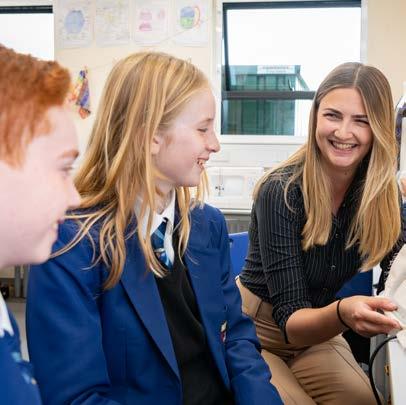
The school has thought carefully about how to teach early reading, and the trust provides support through helpful training. The phonics programme is taught daily. If children need additional time to practise, then this is quickly provided.
”
Ravensworth

The trust and governing body provide effective support and challenge to school leaders. Leaders have been bringing about improvements in a sharp and focused way. Staff value the wealth of opportunities provided by the trust for their professional development, which is a high priority. Staff feel well supported by leaders and appreciate the efforts made to manage their workload.”
”
Mead Road
” ”
The trust provides helpful curriculum training for teachers.
Scotts Park


So much work has happened across our schools since 2020. The trust is a term that now captures a huge amount of who we are and what we do. We want the brand to become synonymous with quality and there are many things that we do, that have been cocreated and are consistent across the schools. They are who we are.
• A consistent framework to lessons, consistent expectations in class underpinned by research
• Behaviour and routines that support learning
• A safe and well looked after environment where pupils can thrive
• The opportunity to participate in a wide range of activities
• The right to belong
• Better resources for learning, for those that need a little more help
• A curriculum that is interesting and relevant
• Clear accountability and consistent reporting of performance across the schools
• Strategic support that guarantees much more than a safety net for the school
• The guarantee that the schools will be fairly resourced
• A commitment that we aim to make the schools work for their local community
• Competitive pay and conditions
• Professional development and training in an organisation that is receiving national attention for its work in instructional coaching
• A leadership development programme for new and talented leaders

• Smart systems to reduce workload
• A reduction on bureaucracy to focus on what really matters
• Support and challenge from colleagues and experienced heads with a record of success
• More leadership opportunities across our schools
• A codified model based on research.
• Continuing professional development from high quality facilitators
• Background resources to support with planning and workload
• Full Estates support resource and a generous allocation for buildings and high-quality estates
• Contract Management and Procurement (Catering/Cleaning/Printing)
• Full HR and Payroll Support
• Full governance support and training
• Strategic Support and School Improvement Support
• Quality Assurance Reviews in Safeguarding, SEND and Compliance
• Full Finance Service
Orion Eden Park was the first of our schools to rebrand.
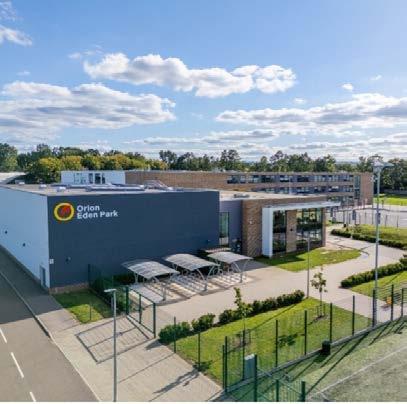
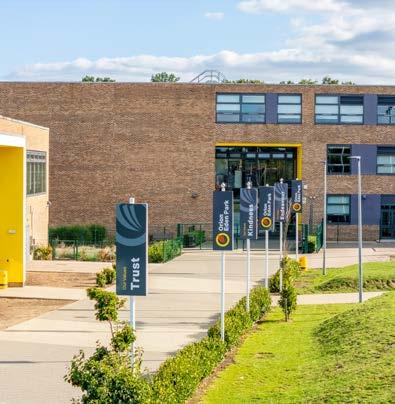
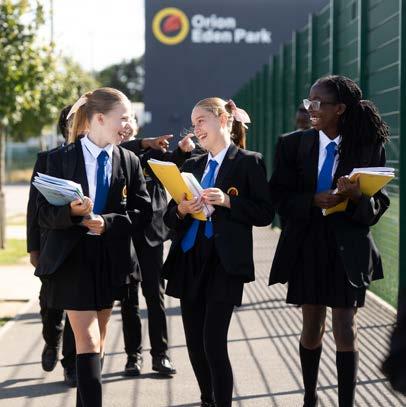
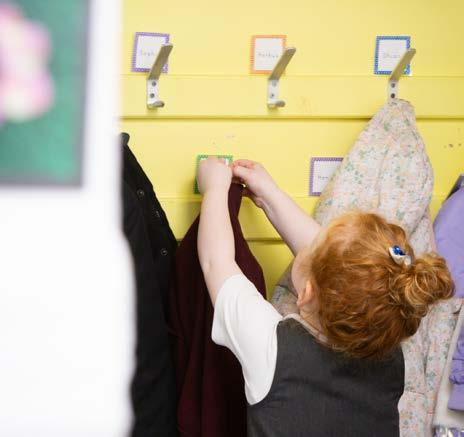
The Attainment 8 score is calculated from the sum of 4 elements (or “buckets”) for each pupil:
• English – double weighted – best of English Language or Literature
• Maths – double weighted
• EBacc3 – three highest point scores from any of the EBacc qualifications in science subjects, computer science, history, geography, and languages.
• Other3 / Open3 – the three highest point scores in any three other subjects.
For each KS2 average prior attainment the national average Attainment 8 score is calculated. The Progress 8 score for a pupil is the difference between their score and the national average.
The Progress 8 score for a school is the average of the pupil scores. It is important to emphasise that Progress 8 is a relative measure, calculated each year on the basis of the actual results of all of the pupils taking exams at the end of Key Stage 4 that year.




Blenheim Primary School
Ravensworth Primary School
Attendance
Authorised 3.7%
Unauth. Absent 4.4%
Road Infant School
Authorised
Unauth. Absent 5.1%
Coopers School
Authorised
Unauth.
Spires Academy
Authorised
Unauth.
In 2023/2024 we have sought to embed the curriculum principles that we developed some years ago.
In the primary curriculum we continued to embed Read Write Inc. and our new maths curriculum.
In the EBACC Subjects (English, maths, science, computing MFL, history and Spanish) our leaders have been meticulous about their approach to planning as they begin to develop more detailed medium-term and short-term plans. These provide our teachers with clear exemplars that they can use if they choose. They are not a straitjacket; they are a framework, and they ensure greater consistency across our schools.
At pace, our 6th form strategy is making a difference to the young people we serve. Schools are clear on the entitlement for every student, our academic and vocational offer is further enhanced with weekly enrichment. Our core careers programme supports more students attending Universities and Degree Apprenticeships.





Strong Culture: Warm Strict, Teacher Radar, Track the Speaker, 100%, Do it Again, No Opt Out, Narrate the Positive, Least Invasive Intervention, Economy of Language are expected at every stage.
Rigour: Stretch It, Culture of Error, Format Matters, Right is Right Strong Start

• Greet on threshold
• Check uniform
• Take register






• In silence
• Retrieval practice
• Learning intentions
• Key vocabulary
• Teacher exposition
• Use modelling and exemplar
• Scaffolded model – pair/group/whole class work
• In silence if appropriate and independent
• Live marking and feedback
• Intervention as needed
• Use Learning Intentions to assess – self/teacher/peer

• Tidy up routines
• Threshold and orderly dismissal
This year, we have reviewed our lesson framework to simplify it and emphasise the importance of checking for understanding at every stage of the lesson. This enables teachers to be responsive to the needs of the pupils they are teaching, identify and address misconceptions, and move progress forward more rapidly. Coaches now use a bespoke sequence, which is aligned to that framework, to coach teachers to improve. This ensures we are continually developing teachers towards our model of excellence in teaching. Our Trust Twilights this year have all focused on how to check for understanding effectively.
Following the implementation of new assessment and reporting for pupils last year, we have been focussed on making these assessments consistent and high quality. The implementation of GCSE papers, key stage papers and primary papers has been more consistent across the board. There is room for improvement but more and more, they lead to swift intervention, where there is the need to support a pupil. Of course, we aim to improve these further to give parents more information about their child’s learning and there will be some further improvements in 25/26.
Careers Education, Information, Advice and Guidance (CEIAG) continues to develop at pace across the schools. Natalie McIntosh, CEIAG Trust Lead from Eden Park leads the Careers Strategy and meets regularly with each CEIAG lead in each school. We now have a coordinated approach to Work Experience for all year 10 and year 12 students, Unifrog online CEIAG platform, Destinations, Policies, school CEAIG Websites and an online platform for sharing resources. We are currently reviewing the existing CEIAG (Careers Education, Information, Advice, and Guidance) staffing structure to enhance the provision of CEIAG across all schools. We use Compass data to create bespoke action plans for each school. We have the goal for all schools to meet all 8 Gatsby Benchmarks by the end of the academic year.


As part of the Cradle to Career programme we continue to explore how to work more effectively with our communities. In 2023-2024 we have;
• Applied to open three nurseries in our primary schools
• Piloted a community programme in Ravensbourne
• Appointed a fundraising lead to explore and develop our fundraising work
• Established plans to set up a Charitable Foundation as an umbrella for our community work




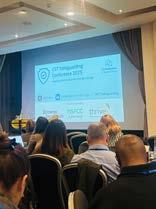

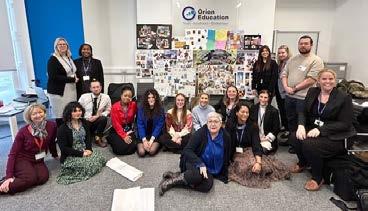

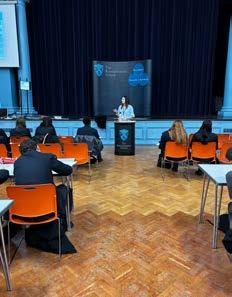
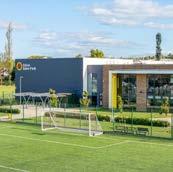
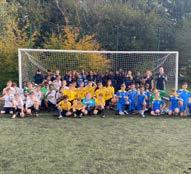
The Trust made a £553k revenue surplus in 23/24 (excluding the fixed asset and pension reserve)1. As a consequence of this surplus, the Trust’s unrestricted reserves increased from 5.06% of total annual income at the end of 22/23 to 5.96% in 23/24. This increased level provides the Trust with more security going forwards and is in line with the minimum reserves per our reserve policy and that of most other academy trusts.
The Trust used the reserves to generate £221,000 additional income through low-risk deposits.
An advantage of belonging to a multi academy trust is the School Condition Allocation (SCA) funding we receive. The money that we are allocated is for capital expenditure and can be used on:
Safe Structural defects, hot water issues, suitable fire alarm systems, fire compartmentation issues
Dry Leaking roofs, replacement of 30-year-old flat roofs
Warm Replacement of heating systems
Sustainable Installation of LED lighting and solar panels
Environment Create quality professional environments for staff and students
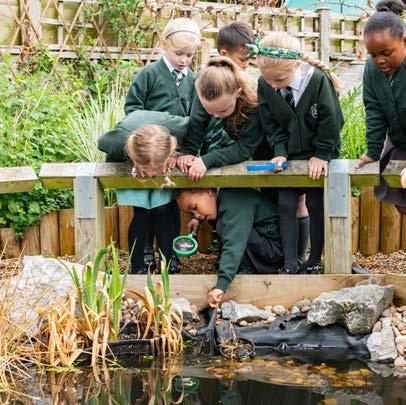
Building condition surveys were carried in the Spring of 2023, these reports support us in creating a robust 5-year strategic estates management plan. We use a construction consultant specialist who then advise us on where and how to spend the money across the estate. This is prioritised on need and for the period 2024/25 the trust invested just under 1.0m as follows.
At Orion Education, ongoing investment in our estates remains a top priority. Our projects include major initiatives such as roof replacements, fire safety improvements, upgrades to learning and staff environments, and fencing replacements. Additionally, we continue to undertake a wide range of minor works across our estates to enhance safety and functionality.
Instructional coaching remains our core model for CPD for teachers and we are continuously developing our associate staff. We are implementing and embedding our wellbeing strategy and have trained mental health first aiders in all Schools. We are delighted to announce that Orion Education has achieved the Workplace Wellbeing Charter accreditation award. This is a national accreditation for organisations who are committed to improving the health and wellbeing of their workforce. Orion Education will now be listed with Workplace Wellbeing Charter status alongside the other organisations committed to championing wellbeing in the workplace. We continue to harness our staff survey results to drive cultural change and address issues.
Employee net promotor score (eNPS): -28.47 which indicates that there are less promoters than detractors in Orion Education,
Turnover was at 28% across the Trust, we have supplemented exit questionnaires with interviews to understand reasons for leaving.
Employee absence: Total number of working days lost 4358.5. We continue to implement our absence management policy with greater rigour and supporting staff through occupational health referrals to return to work with adjustments in place.
Professional Growth & Talent Management
• Instructional Coaching for all Teachers
• Centrally driven Twilight training to improve data driven instruction across schools
• Recruit 10 trainees for SCITT
• Implement Leadership Strategy
• Embed approach to talent management
• Launch associate staff development plan
• Golden thread – Leadership development – NIOT partnership (ITT, ECT and NPQ for leaders)
• Review the recruitment information and relaunch
• Focus on apprenticeships
• Start with the why; overcommunicate the 4 critical questions
• Review flexible working offer
• Regular CEO & Leadership meetings with staff
• Harnessing Edurio staff survey results to drive cultural change and address issues and review survey provider
• Review comprehensive wellbeing app and Employee Assistance Programme (EAP)
• Ensuring adequate number Mental Health First Aiders
• Review of wellbeing initiatives
• Annual staff conference
• Gain external accreditation for wellbeing
• Relaunching line management
• Orion Education presence at recruitment fairs - streamline presentation and include university in Canterbury Annual induction event
Improve use of talent pool on MyNewterm
• Continually promote employee benefits
• Annual review of staff for each school with HR Business Partner
• Annual HR Audit in each school by HR Business Partner
• HR system (Civica) to sync with Management Information System (Arbor) Suite of template job descriptions

Every two years we hold an all-trust staff conference. The purpose is to inspire each other and challenge us to add more. This year we were lucky enough to be joined by Heather Small who generously gave her time for free to support our schools. If you would like to see the performance, please click here
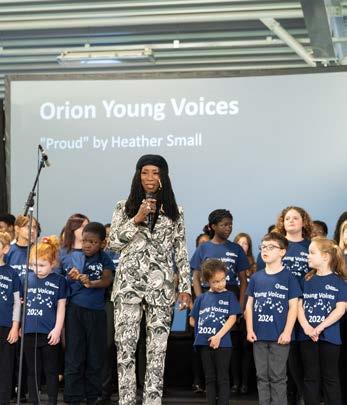

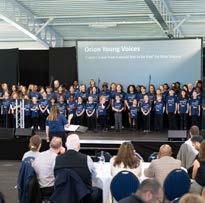
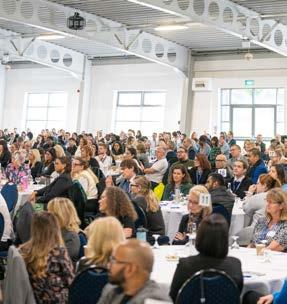
Over the past year, we have continued to build on our Trust’s sustainability strategy, alongside the implementation of individual sustainability plans within our schools. This aligns with the Department for Education’s requirement for all schools to have a Climate Action Plan in place by the end of 2025.
To further support this commitment, we have recently appointed a Trust Sustainability Lead, who is focused on integrating sustainability into the curriculum.
Significant progress has also been made in exploring renewable energy solutions. Solar panel feasibility surveys have been conducted across all our estates, leading to the development of a four-year plan for installation. The first phase will begin in summer 2025, with two primary schools set to receive solar panels funded through the School Condition Allocation.
Additionally, we have secured funding to assess the design and cost implications of installing ground and air source heat pumps at two schools, as part of our effort to transition away from fossil fuel-based heating systems. However, despite the availability of a government matching scheme, the financial investment required remains prohibitive at this time. We will continue to review this annually, ensuring that we invest at the right time as costs become more viable.
Our commitment to sustainability remains a priority, and we will continue to seek opportunities to reduce our environmental impact while supporting the long-term sustainability of our schools.
Following the launch of DEI work at the staff conference in October 2022, we continue to work on this important area, aiming to “Develop our consciousness, confidence and competence in DEI.” The table below sets out our progress by principle:
Principle
Creating inclusive workplaces
Creating belonging for all
Building representation in the curriculum
Ensuring that policies, processes, practices are inclusive and equitable
Recruiting, developing & retaining diverse talent
Committing to CPD for staff
Listening to stakeholder views
Using data to inform the strategy
96% of staff (400) felt that the schools were inclusive of different backgrounds, identities and needs. We continue to promote belonging in our schools.
75% of staff gave a positive response when asked whether they feel part of a team across our trust
We have created a DEI framework for reviewing the curriculum. This is used as teachers rewrite schemes of learning as part of their normal life cycle.
74% of pupils felt that their schools were committed to it. Answers ranged from moderate to strong. 94% of staff felt that their schools were committed to it. Answers ranged from moderate to strong.
We reviewed our approach to recruitment and selection and will report data on this in the future.
A new round of training will start in 25/26
We do this through the Edurio staff, pupil and parent surveys.
We collated data on staff and pupils for the first time in May 2023 and this is now an annual process.
@orion_education
@OrionEduc
@orionedu.org.uk
@orionedu
Orion Education Website: Orion Education - Home
Work with us: Orion Education - Vacancies
Latest News: Orion Education - Latest News
Contact us: Orion Education - Contact Us








Blenheim Primary School: admin@blenheim.info
Coopers School: adm@coopersschool.com
Mead Road Infant School: admin@meadroad.info
Spires Academy: office@spiresacademy.com
Ravensworth Primary School: admin@ravensworth.info
The Ravensbourne School: office@ravensbourne.info
Scotts Park Primary School: admin@scottspark.bromley.sch.uk
Orion Eden Park: info@edenparkhigh.com
